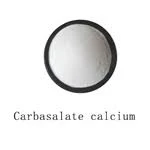- Afrikaans
- Albanian
- Amharic
- Arabic
- Armenian
- Azerbaijani
- Basque
- Belarusian
- Bengali
- Bosnian
- Bulgarian
- Catalan
- Cebuano
- Corsican
- Croatian
- Czech
- Danish
- Dutch
- English
- Esperanto
- Estonian
- Finnish
- French
- Frisian
- Galician
- Georgian
- German
- Greek
- Gujarati
- Haitian Creole
- hausa
- hawaiian
- Hebrew
- Hindi
- Miao
- Hungarian
- Icelandic
- igbo
- Indonesian
- irish
- Italian
- Japanese
- Javanese
- Kannada
- kazakh
- Khmer
- Rwandese
- Korean
- Kurdish
- Kyrgyz
- Lao
- Latin
- Latvian
- Lithuanian
- Luxembourgish
- Macedonian
- Malgashi
- Malay
- Malayalam
- Maltese
- Maori
- Marathi
- Mongolian
- Myanmar
- Nepali
- Norwegian
- Norwegian
- Occitan
- Pashto
- Persian
- Polish
- Portuguese
- Punjabi
- Romanian
- Russian
- Samoan
- Scottish Gaelic
- Serbian
- Sesotho
- Shona
- Sindhi
- Sinhala
- Slovak
- Slovenian
- Somali
- Spanish
- Sundanese
- Swahili
- Swedish
- Tagalog
- Tajik
- Tamil
- Tatar
- Telugu
- Thai
- Turkish
- Turkmen
- Ukrainian
- Urdu
- Uighur
- Uzbek
- Vietnamese
- Welsh
- Bantu
- Yiddish
- Yoruba
- Zulu
Nov . 08, 2024 13:16 Back to list
Levamisole Hydrochloride and Oxyclozanide A Comprehensive Overview of Their Uses and Benefits
The Therapeutic Potential of Levamisole Hydrochloride and Oxyclozanide in Veterinary Medicine
Levamisole hydrochloride and oxyclozanide are two pharmacological agents that have garnered attention in veterinary medicine, particularly for their efficacy in treating parasitic infestations in livestock and other animals. This article explores the properties, mechanisms, and applications of these drugs, shedding light on their importance in ensuring animal health and productivity.
Overview of Levamisole Hydrochloride
Levamisole hydrochloride is an anthelmintic agent that was originally developed for human use but has since found a crucial role in veterinary applications. It functions primarily as a deworming agent, effective against a wide range of nematodes. Its mechanism of action involves the stimulation of the immune system and direct antagonism of neuromuscular function in parasites, leading to paralysis and eventual elimination from the host organism.
The drug is typically administered orally and has a relatively fast onset of action, making it suitable for acute infestations. In addition to its anthelmintic properties, levamisole also exhibits immunomodulatory effects, which can enhance the overall health of the animal, particularly in times of stress or after infection.
Oxyclozanide A Complementary Agent
Oxyclozanide is another potent anthelmintic that is particularly effective against trematodes and certain cestodes, primarily in ruminants. Its mode of action is somewhat similar to that of levamisole, as it interferes with the energy metabolism of parasites, ultimately leading to their death. Oxyclozanide is typically used for the treatment of liver fluke infections, which can cause significant health issues in affected animals.
The combination of levamisole hydrochloride and oxyclozanide can provide a broad-spectrum approach to managing parasitic infections
. This dual-action treatment not only addresses various types of parasites but also helps to reduce the likelihood of developing resistance, which is a growing concern in veterinary parasitology.levamisole hydrochloride oxyclozanide

Clinical Applications and Benefits
The therapeutic application of levamisole hydrochloride and oxyclozanide is most prevalent in large livestock, such as cattle, sheep, and goats. These animals are often exposed to various parasites due to their grazing habits and environmental conditions. Effective treatment of parasitic infections not only improves the health of the individual animals but also enhances overall flock or herd productivity.
For instance, gastrointestinal parasites can lead to severe weight loss, decreased milk production, and poor reproductive performance in livestock. The timely administration of levamisole and oxyclozanide can mitigate these risks, resulting in healthier animals and increased economic returns for farmers. Moreover, treating parasitic infections is vital for reducing the reliance on antibiotics in livestock, which is important for addressing concerns about antibiotic resistance in agriculture.
Safety and Efficacy Considerations
While both levamisole hydrochloride and oxyclozanide are generally considered safe for use in animals when administered according to established protocols, it is essential to adhere to dosage recommendations to avoid potential toxicity. Careful consideration should also be given to withdrawal periods for meat and milk in treated animals to ensure compliance with food safety regulations.
Veterinarians play a pivotal role in determining the appropriate treatment protocols tailored to the needs of specific farms or animal populations. Regular monitoring and assessment of the efficacy of these treatments are crucial to adapting strategies in response to changing parasite populations and resistance patterns.
Conclusion
Levamisole hydrochloride and oxyclozanide represent vital tools in the arsenal of veterinary medicine for combating parasitic infections. Their combined use enhances treatment efficacy and helps safeguard the health and productivity of livestock. As the agricultural landscape continues to evolve, the importance of effective parasite control cannot be overstated, making a thorough understanding of these anthelmintic agents essential for veterinarians and animal health professionals. With ongoing research, the future holds promising developments in optimizing the use of these drugs, ultimately benefiting animal welfare and agricultural sustainability.
-
Guide to Oxytetracycline Injection
NewsMar.27,2025
-
Guide to Colistin Sulphate
NewsMar.27,2025
-
Gentamicin Sulfate: Uses, Price, And Key Information
NewsMar.27,2025
-
Enrofloxacin Injection: Uses, Price, And Supplier Information
NewsMar.27,2025
-
Dexamethasone Sodium Phosphate Injection: Uses, Price, And Key Information
NewsMar.27,2025
-
Albendazole Tablet: Uses, Dosage, Cost, And Key Information
NewsMar.27,2025













